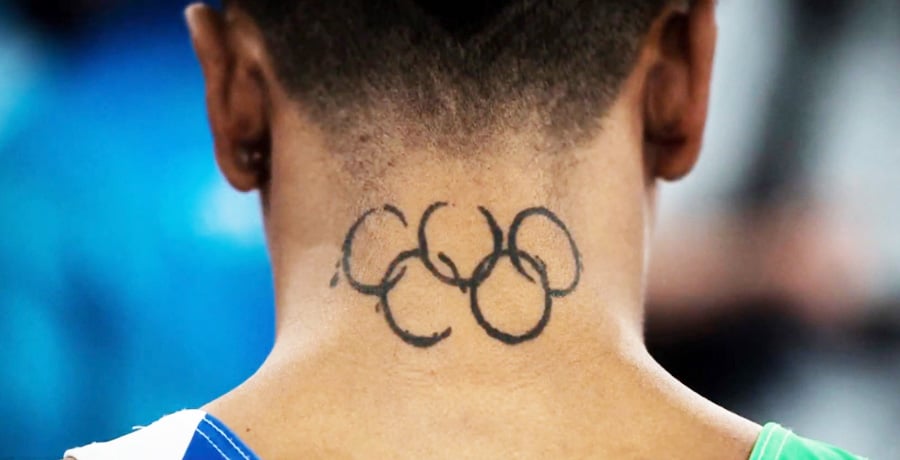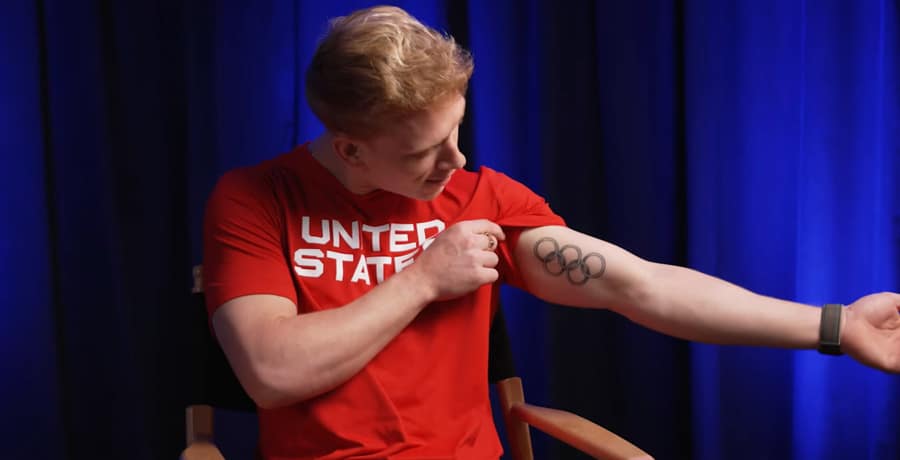Paralympics Disqualifies Swimmer For Olympic Rings Tattoo

In some confusing news, the Paralympics, which kicks off soon in Paris, has a rule in place that makes little sense to fans. The International Paralympic Committee (IPC) will disqualify any athlete with a tattoo of the Olympic rings visible on their bodies.
Here is why the committee is punishing athletes who celebrate the Olympics.
Paralympics Have Disqualified Athletes With Tattoos In The Past
This rule comes from an incident in the past, but the rules based on the Olympic rings make no sense. Regarding the Summer Olympics, these rules are considered a “common sense approach.” In one case, American middle-distance runner Nick Symmonds was paid $21,800 from T-Mobile to tattoo their logo on his arm.

This happened in the 2016 Rio Olympics, which caused problems with AT&T, which was a sponsor of Team USA at the time. However, this was the Summer Olympics, not the Paralympics. When it comes to the Paralympics, there are no “common sense” rules. It is a flat rule that says any tattoos considered “advertising” result in a disqualification.
The Paralympics considers the Olympic rings advertising for the Summer and Winter Olympics. This seems counterproductive. The trend of athletes getting Olympic ring tattoos to show their pride started after the 1988 Seoul Olympics.
Chris Jacobs, a swimmer who earned three medals at the 1988 Seoul Olympics, said it is “like a membership card to an exclusive club” (via USA Today). “They represent a lot to many people. I wanted to commemorate that period in my life.”
Fans Feel Paralympics ‘Discriminatory’ To Athletes
Since the Olympic ring tattoos honor making it to the Olympics, many athletes end up punished for “advertising” when there is no advertising.
Fans online have chimed in, questioning what the Paralympics preaches “inclusiveness” but is actually discriminating against the athletes who show pride in their accomplishments.
- “What if it was an ex-Olympian (who had the tattoo) and who now has a disability, so needs to be in the paraolympics?”
- “How can the Olympic rings be considered ‘advertising’?”
- “Well it didn’t get the able Olympians banned so let’s talk equality.”
There is a way that the athletes can still compete with the tattoos, but it is harder for some (swimmers) than others (track). If the athletes sport a tattoo the IPC considers advertising, they can cover it up. Since the IPC considers the Olympic rings “advertising,” the athletes need to cover the tattoos somehow.
The IPC penalized and disqualified Josef Craig from his swimming competition because of the Olympic rings tattooed on his chest. The cerebral palsy athlete won the event but then had the win stripped.
Heading into the 2016 Rio Olympics, he circumvented the roles by painting the Union Jack flag over the Olympic rings. Since the IPC can’t logically consider a country’s flag to be advertising, they couldn’t penalize him.
What do you think about the Paralympics rules against Olympic rings tattoos? Let us know your thoughts in the comments below.
- The Reason Taylor Kinney Was Missing On ‘Chicago Fire’ - December 24, 2024
- Sherri Shepherd Explains Missing Tooth From Party Photo - December 24, 2024
- ‘Yellowstone’ Danielle Vasinova Almost Dies In Medical Emergency - December 24, 2024

That is SO wrong!!!! How can the Olympic rings be considered advertising? This world gets crazier & maddening by the day.
Advertising?!?!?! They’re IN the Olympics! It’s a travesty to penalize them!
In two fields where diversity and inclusiveness are suppose to be the monarchs of the institutions, this action against athletes is absurd. The organizations ask the world to celebrate and embrace our differences but the athletes can’t sport the tattoos of their choosing because of sponsors? How about you advocate for the athletes instead of your sponsors. You don’t ban all the different brands that sponsor the jerseys and sportswear of individuals/team commercial brands (Nike, TYR, Speedo, Arena, etc.) so how can you ban certain tattoos?
This right here! Why not ban the designers that sport their branding on olympic clothing. Thats advertising and its okay. Again, they need to make it make sense.
wait, he had the tattoo but wasn’t disqualified until AFTER HE WON? This whole thing just sucks
It goes beyond discriminatory, unjust and plain stupid to cruel. He could have been spared some of the pain if he’d been disqualified before he could swim in the race
This makes absolutely no sense. The Olympics is to be celebrated and a tattoo by an athlete of the Olympic Rings is a type of this celebration. In no way is it advertising. The committee is just plain wrong for this.
considering how many able athletes had the rings tattooed on their bodies, this seems extremely discriminatory.
The Olympics aren’t on the Democrat’s official DEI list.